Generating trillions of dollars in revenue each year, tourism is one of the world’s major industries. It has a massive economic effect, creating jobs, generating income, and boosting local economies. Travellers, on the other hand, have a direct impact on a city’s well-being by staying in its hotels, dining at local restaurants, shopping at artisan markets, and booking tours with local guides.
According to the latest edition of Euromonitor’s Top 100 City Destinations Index, the top performing locations are Paris, Dubai, Amsterdam, Madrid, and Rome. But are these cities where tourists feel most at ease, and are there equally appealing but less expensive options? Our team at SuperCasinoSites decided to help you choose your next destination by rating 100 cities based on four criteria: cost of living, safety, air quality, and the amount of sunshine these cities get on average (i.e. the number of sunlight hours per year).
While half of the cities on our list are in Europe, the two best-scoring destinations are Chiang Mai and Antalya, both located in Asia. Surprisingly, Edinburgh, the highest-ranked UK city, only ranks 50th overall.
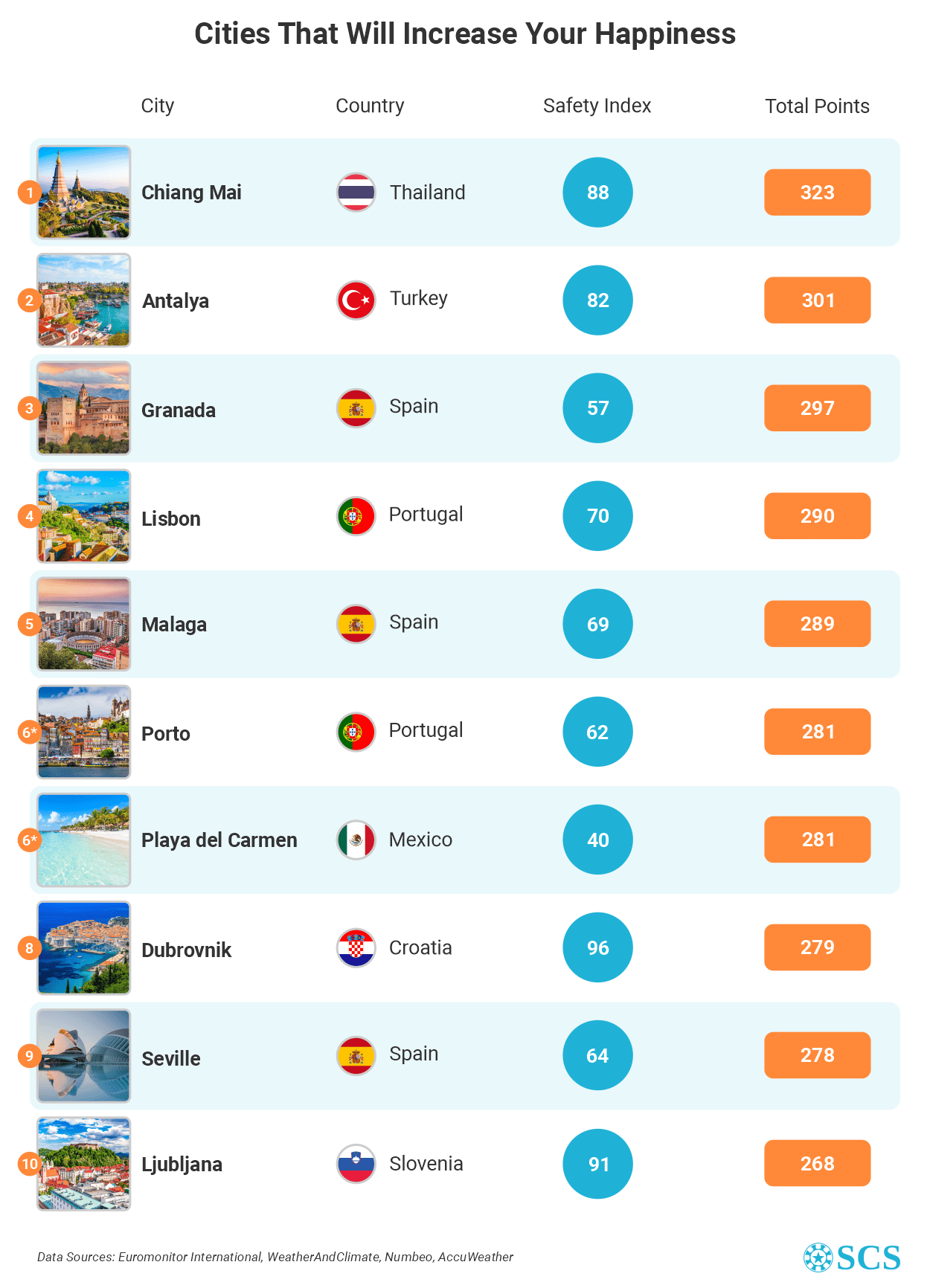
Methodology
The following sources provided data for each criterion:
The first phase in our research was to gather information on each factor for the cities listed in the latest edition of Euromonitor International’s Top 100 City Destinations Index. Since cost of living data for 15 of the locales was not accessible, they were omitted from the review and substituted with other popular travel destinations, including Bogotá, Quito, Liverpool, and Rimini, to name a few.
Each city was then assigned a score ranging from 100 to 1 based on how high it ranked in that particular criterion. For example, 100 points were given to the city with the best air quality index and 1 for the city which ranked last. This was done for each of the four factors we looked at. In the end, we added up the points for each city and the one with the most points, i.e. the one that ranked high the most times, came out as the overall winner.
The Top 5 Cities That Will Make You Feel Good The Most
Of course, all of the 100 cities we explored are worth a visit as they all boast unique selling points, such as tasty local cuisine, picturesque scenery, friendly locals, or wonderful weather. However, neither time nor budget are unlimited for most of us, so our team decided to focus on the five top-ranked locations.
So, pack your luggage and let’s go!
1. Chiang Mai, Thailand 🇹🇭

Perhaps unexpected to some, Thailand’s Chiang Mai emerged as the city capable of providing the most delightful travel experience. The city is located in the north of the country and is mostly known for its historical temples, magnificent mountains, and pleasant weather. There are plenty of tourist attractions too, including the stunning Botanic Garden, a terrific place to soak up some local culture and take in the beautiful aroma of Thai orchids.
Everyone has heard of the markets and nightlife in Bangkok. Well, in Chiang Mai, you can have the same fun but for less money. Furthermore, the data we gathered suggests that Chiang Mai is the safer of the two cities, with an index of 76.36 vs 60.02 in the capital.
Chiang Mai’s rank for each factor:
- Cost of living: 11th
- Safety: 13th
- Air quality: 16th
- Amount of sunshine: 41st
2. Antalya, Turkey 🇹🇷

If you are on a limited budget, want to have a good rest, and avoid boredom, pack your suitcase for the Turkish city of Antalya. It has the third lowest cost of living index on our list, trailing only Cairo and Delhi by a small margin. The only slight concern is that, according to AccuWeather, the Air Quality Index is 47 or on the verge of being designated “poor”.
From mountain lodges to beachfront hotels, Antalya offers pretty much everything a tourist would want in terms of accommodation. Add to this the friendly local population, delicious food, turquoise Mediterranean waters, and stunning nature, and there is no doubt that Antalya is well worth a visit.
Antalya’s rank for each factor:
- Cost of living: 4th
- Safety: 19th
- Air quality: 61st
- Amount of sunshine: 20th
3. Granada, Spain 🇪🇸

When you think of Spain as a holiday destination, probably the first cities that come to mind are Barcelona and Madrid, and maybe even Seville or Palma de Mallorca. However, it turns out that Granada has a considerably higher ranking, occupying the 3rd position on our list.
This sun-soaked city is widely recognised for its Moorish architecture and history, as well as its tapas culture and Flamenco performances. Those tempted by history will surely want to stroll through the amazing gardens of the Alhambra, where Catherine of Aragon lived. Moreover, the air is extremely clean, as Granada’s AQI is 22, or nearly “excellent” on the AccuWeather scale.
Granada’s rank for each factor:
- Cost of living: 38th
- Safety: 44th
- Air quality: 6th
- Amount of sunshine: 19th
4. Lisbon, Portugal 🇵🇹

Fourth on our list of mood-boosting cities is the Portuguese capital, Lisbon. The city is famous for its warm, sunny climate, colourful, old buildings, great nightlife, and welcoming locals. Each of Lisbon’s neighbourhoods has a distinct vibe, waiting to be discovered.
The city is an interesting mix of old and new and is home to a number of well-known landmarks, including São Jorge Castle, Belém Tower, and Praça do Comércio, among others. Lisbon also boasts many different viewpoints (miradouros), each offering a different take on the city. Don’t forget your camera!
Lisbon’s rank for each factor:
- Cost of living: 43rd
- Safety: 31st
- Air quality: 18th
- Amount of sunshine: 22nd
5. Malaga, Spain 🇪🇸

Pablo Picasso’s home city, Malaga, ranks fifth on our list. As one of the world’s oldest cities, Malaga boasts a rich cultural tapestry dating back thousands of years, having an Andalusian background that adds some Moorish magic to its allure.
However, it is not just history that draws visitors to Malaga but also its thriving gastronomic offerings, 150 km of coastline, and a wealth of shopping opportunities. The city offers a great mix of sunshine, 2,910 hours per year, and clean air, AQI of 31 or fair according to the AccuWeather scale.
Malaga’s rank for each factor:
- Cost of living: 37th
- Safety: 32nd
- Air quality: 28th
- Amount of sunshine: 18th
The Mood-Boosting Factors We Focus On
Here is a breakdown of the mood-boosting factors, the four criteria on which we based our rankings, what they indicate, why we chose them, and which cities rank the highest. Interestingly, 5 of the 10 sunniest cities are also among the safest localities, and one, Cairo, is the cheapest to live in.
Cities with the Most Sunshine
How to make the most of a trip? Stay calm, positive, and focused while touring the destination of your choice: it is that simple. The more hours of daylight the better as the sun is scientifically proven to enhance the release of serotonin, the hormone that mediates satisfaction, happiness, and optimism.
We decided to consult the Weather and Climate platform and find out which cities receive the most sunlight. Data was collected about the average annual hours of sunlight for each of the 100 localities in our selection. Las Vegas, Nevada ranks first with 3,830 hours of sunshine each year.
Where would you choose to go?
| Rk |
City |
Country |
Hours of Sunshine |
| 1 |
Las Vegas |
USA |
3830 |
| 2 |
Abu Dhabi |
UAE |
3738 |
| 3 |
Dubai |
UAE |
3580 |
| 4 |
Muscat |
Oman |
3500 |
| 5 |
Sharjah |
UAE |
3493 |
| 6 |
Cairo |
Egypt |
3450 |
| 7 |
Doha |
Qatar |
3440 |
| 8 |
Jerusalem |
Israel |
3390 |
| 9 |
Tel Aviv |
Israel |
3330 |
| 10 |
Los Angeles |
USA |
3259 |
Cities with the Cleanest Air
Air quality is an essential component of our research as we believe that people need to be healthy in order to enjoy life and travel to the fullest. Using the AccuWeather Air Quality Scale, we found which cities rank highest in this category and where even a short walk down the streets poses a health risk.
We classified 70 cities as safe because their AQI indices were less than or equal to 49, with AccuWeather’s first two categories being excellent 0-19 and fair 20-49. Interestingly, the top three includes locations from three different continents, Miami in North America in 1st place, Quito in South America in 2nd place, and Tallinn and Edinburgh in Europe splitting 3rd place.
Here are the travel destinations with the cleanest air:
| Rk |
City |
Country |
Air Quality Index |
| 1 |
Miami |
USA |
16 |
| 2 |
Quito |
Ecuador |
18 |
| 3 |
Tallinn |
Estonia |
20 |
| 3 |
Edinburgh |
UK |
20 |
| 5 |
Bogota |
Columbia |
21 |
| 6 |
Granada |
Spain |
22 |
| 6 |
Porto |
Portugal |
22 |
| 6 |
Melbourne |
Australia |
22 |
| 9 |
Honolulu |
USA |
23 |
| 9 |
Ho Chi Minh City |
Vietnam |
23 |
| 9 |
Bologna |
Italy |
23 |
| 9 |
Ljubljana |
Slovenia |
23 |
| 10 |
San Francisco |
USA |
24 |
| 10 |
Stockholm |
Sweden |
24 |
Safest Cities
You can be in the sunniest city, breathing in the purest air and admiring the scenery, but if you have to keep an eye out for pickpockets at every turn, you will miss the fun part. It is therefore critical to research the region’s peculiarities in this regard, especially if you are visiting for the first time.
Of course, there is no way to know the crime level in any of the 100 cities in our selection. That is why we used Numbeo’s Crime Index, which summarises attributes like perceived safety while walking around day and night, property-related crimes, and others. Abu Dhabi, Sharjah, and Dubai in UAE are among the safest places, with Doha, Qatar situated in between in second place. The safest European city is Dubrovnik, Croatia.
Here is a breakdown of the top 10 and how they scored:
| Rk |
City |
Country |
Safety Index |
| 1 |
Abu Dhabi |
UAE |
88 |
| 2 |
Doha |
Qatar |
86 |
| 3 |
Sharjah |
UAE |
83.96 |
| 4 |
Dubai |
UAE |
83.8 |
| 5 |
Dubrovnik |
Croatia |
82.25 |
| 6 |
Muscat |
Oman |
79.84 |
| 7 |
Munich |
Germany |
79.3 |
| 7 |
Zurich |
Switzerland |
79.3 |
| 9 |
Hong Kong |
Hong Kong |
78.3 |
| 10 |
Ljubljana |
Slovenia |
78.2 |
Least Expensive Cities
It is no secret that when it comes to booking a trip, money is often the deciding factor. So, if you have weighed up the pros and cons of a certain city and decided you want it as your next travel destination, the only thing left to do is check if you can afford it.
That is why we did not hesitate to include this factor in our evaluation of the world’s mood-boosting travel destinations. Mumbai, India, ranked as the cheapest city to visit out of the 100 examined, closely followed by Cairo, Egypt, and another Indian city, Delhi. When researching which city has the lowest cost of living, we used Numbeo’s Cost of Living Index 2023.
Here are the top 10 cities that will cause the fewest money worries:
| Rk |
City |
Country |
Cost of Living Index |
| 1 |
Mumbai |
India |
25.1 |
| 2 |
Cairo |
Egypt |
25.2 |
| 3 |
Delhi |
India |
25.5 |
| 4 |
Antalya |
Turkey |
26.6 |
| 5 |
Bogota |
Columbia |
29.3 |
| 6 |
Buenos Aires |
Argentina |
30.2 |
| 7 |
Johor Bahru |
Malaysia |
32.2 |
| 8 |
Istanbul |
Turkey |
33.4 |
| 9 |
Quito |
Ecuador |
34.6 |
| 10 |
Hanoi |
Vietnam |
35 |
Raw Data
| Rank |
City |
Country |
Sunshine Hours per Year (average) |
Air Quality Index |
Cost of Living |
Safety Index |
| 1 |
Chiang Mai |
Thailand |
2525 |
26 |
35.2 |
76.36 |
| 2 |
Antalya |
Turkey |
2870 |
47 |
26.6 |
74.26 |
| 3 |
Granada |
Spain |
2880 |
22 |
50.3 |
63.49 |
| 4 |
Lisbon |
Portugal |
2801 |
27 |
52.2 |
70.67 |
| 5 |
Malaga |
Spain |
2910 |
31 |
49.7 |
70.37 |
| 6 |
Playa del Carmen |
Mexico |
2790 |
26 |
43 |
52.68 |
| 7 |
Porto |
Portugal |
2485 |
22 |
46.6 |
67.36 |
| 8 |
Dubrovnik |
Croatia |
2670 |
39 |
51.2 |
82.25 |
| 9 |
Seville |
Spain |
2920 |
33 |
51.4 |
67.93 |
| 10 |
Ljubljana |
Slovenia |
1982 |
23 |
55.2 |
78.2 |
| 11 |
Sharjah |
UAE |
3493 |
108 |
49.2 |
83.96 |
| 12 |
Ho Chi Minh City |
Vietnam |
2495 |
23 |
36.5 |
47.66 |
| 13 |
Varna |
Bulgaria |
2158 |
27 |
40.3 |
63.4 |
| 14 |
Tallin |
Estonia |
1930 |
20 |
58.1 |
76.5 |
| 15 |
Muscat |
Oman |
3500 |
92 |
50.4 |
79.84 |
| 16 |
Cairo |
Egypt |
3450 |
55 |
25.2 |
49.89 |
| 17 |
Istanbul |
Turkey |
2185 |
30 |
33.4 |
52.08 |
| 18 |
Quito |
Ecuador |
2240 |
18 |
34.6 |
37.44 |
| 19 |
Abu Dhabi |
UAE |
3738 |
111 |
59.8 |
88 |
| 20 |
Budva |
Montenegro |
2445 |
40 |
45.2 |
70.76 |
| 21 |
Tel Aviv |
Israel |
3330 |
37 |
74.2 |
73.3 |
| 22 |
Heraklion |
Greece |
2786 |
49 |
53.1 |
73.71 |
| 23 |
San Salvador |
El Salvador |
2961 |
31 |
43.2 |
36.93 |
| 24 |
Buenos Aires |
Argentina |
2520 |
27 |
30.2 |
36.72 |
| 25 |
Jerusalem |
Israel |
3390 |
35 |
67.7 |
63.05 |
| 26 |
Doha |
Qatar |
3440 |
115 |
59.4 |
86 |
| 27 |
Cancun |
Mexico |
2715 |
28 |
44.9 |
43.85 |
| 28 |
Dubai |
UAE |
3580 |
109 |
66.1 |
83.8 |
| 29 |
Bangkok |
Thailand |
2630 |
45 |
44.9 |
60.02 |
| 30 |
Johor Bahru |
Malaysia |
2632 |
43 |
32.2 |
46.77 |
| 31 |
Budapest |
Hungary |
1980 |
25 |
51.9 |
65.6 |
| 32 |
Phuket |
Thailand |
2100 |
38 |
40.3 |
57.28 |
| 33 |
Palma de Mallorca |
Spain |
2785 |
48 |
55.1 |
66.37 |
| 34 |
Miami |
USA |
3150 |
16 |
81.7 |
46.8 |
| 35 |
Verona |
Italy |
2100 |
28 |
60.9 |
67.57 |
| 36 |
Vienna |
Austria |
1925 |
27 |
65 |
72.6 |
| 37 |
Honolulu |
USA |
3038 |
23 |
98.4 |
52.9 |
| 38 |
Madrid |
Spain |
2740 |
60 |
52.3 |
72.71 |
| 39 |
Mumbai |
India |
2590 |
70 |
25.1 |
55 |
| 40 |
Krakow |
Poland |
1402 |
34 |
46.1 |
74.22 |
| 41 |
Tbilisi |
Georgia |
2048 |
54 |
42.5 |
74.02 |
| 42 |
Pattaya-Chonburi |
Thailand |
2055 |
42 |
38.9 |
54.82 |
| 43 |
Florence |
Italy |
2488 |
29 |
68.9 |
60.6 |
| 44 |
Beijing |
China |
2505 |
182 |
41.5 |
72.5 |
| 45 |
Kuala Lumpur |
Malaysia |
2220 |
35 |
35.9 |
37.46 |
| 46 |
Rimini |
Italy |
2050 |
27 |
60.2 |
55.87 |
| 47 |
Tokyo |
Japan |
1930 |
43 |
57.3 |
76 |
| 48 |
Edinburgh |
UK |
1440 |
20 |
64.7 |
68.7 |
| 49 |
Mexico City |
Mexico |
2551 |
33 |
46.9 |
31.77 |
| 50 |
Melbourne |
Australia |
2380 |
22 |
79.3 |
56 |
| 51 |
Valencia |
Spain |
2701 |
119 |
49.4 |
70.18 |
| 52 |
Bologna |
Italy |
2042 |
23 |
66.6 |
53.2 |
| 53 |
Munich |
Germany |
1780 |
34 |
74 |
79.3 |
| 54 |
Sydney |
Australia |
2600 |
34 |
81.1 |
65.7 |
| 55 |
Bogota |
Columbia |
1340 |
21 |
29.3 |
33.58 |
| 56 |
Shenzhen |
China |
1840 |
63 |
39.9 |
71.92 |
| 57 |
Delhi |
India |
2780 |
108 |
25.5 |
40.72 |
| 58 |
San Francisco |
USA |
3072 |
24 |
98.4 |
38.6 |
| 59 |
Santiago |
Chile |
2750 |
41 |
52.5 |
37.97 |
| 60 |
Guangzhou |
China |
1630 |
52 |
36.1 |
69.13 |
| 61 |
Orlando |
USA |
3119 |
44 |
74.3 |
49.6 |
| 62 |
Thessaloniki |
Greece |
2406 |
40 |
55.9 |
46.8 |
| 63 |
Stockholm |
Sweden |
1907 |
24 |
69.4 |
54.5 |
| 64 |
Johannesburg |
South Africa |
3126 |
105 |
38 |
19.12 |
| 65 |
Marseille |
France |
2860 |
35 |
66.9 |
35.6 |
| 66 |
Barcelona |
Spain |
2530 |
48 |
57.9 |
49.3 |
| 67 |
Macau |
Macao |
1780 |
50 |
66.1 |
78.18 |
| 68 |
Hanoi |
Vietnam |
1590 |
59 |
35 |
63.57 |
| 69 |
Singapore |
Singapore |
2032 |
42 |
85.9 |
76.3 |
| 70 |
Zurich |
Switzerland |
1699 |
35 |
128.5 |
79.3 |
| 71 |
Shanghai |
China |
1780 |
74 |
43.4 |
70.32 |
| 72 |
Amsterdam |
The Netherlands |
1670 |
37 |
69.2 |
70.9 |
| 73 |
Warsaw |
Poland |
1595 |
68 |
48.3 |
74.47 |
| 74 |
Seoul |
South Korea |
2133 |
51 |
76.3 |
75.2 |
| 75 |
Prague |
Czech Republic |
1674 |
51 |
62.2 |
75.3 |
| 76 |
Athens |
Greece |
2769 |
51 |
59.1 |
44.3 |
| 77 |
Nice |
France |
2580 |
33 |
75.2 |
44.8 |
| 78 |
Milan |
Italy |
1989 |
29 |
73 |
50.6 |
| 79 |
Copenhagen |
Netherlands |
1635 |
32 |
83.1 |
73.4 |
| 80 |
Rio de Janeiro |
Brazil |
2193 |
46 |
43.3 |
22.47 |
| 81 |
Rome |
Italy |
2470 |
48 |
65.7 |
46.9 |
| 82 |
Las Vegas |
USA |
3830 |
66 |
73.5 |
44.4 |
| 83 |
Vancouver |
Canada |
1940 |
38 |
74.4 |
59.1 |
| 84 |
Hong Kong |
Hong Kong |
1825 |
66 |
72.4 |
78.3 |
| 85 |
Los Angeles |
USA |
3259 |
52 |
84 |
47.3 |
| 86 |
Sao Paulo |
Brazil |
2007 |
51 |
44.7 |
29.43 |
| 87 |
Toronto |
Canada |
2071 |
52 |
73.3 |
57.3 |
| 88 |
Lyon |
France |
2006 |
35 |
74.6 |
46.1 |
| 89 |
Naples |
Italy |
2378 |
56 |
56.5 |
37.6 |
| 90 |
Lima |
Peru |
1240 |
47 |
37 |
29.06 |
| 91 |
Berlin |
Germany |
1712 |
49 |
71.1 |
56.5 |
| 92 |
Frankfurt |
Germany |
1680 |
49 |
71.6 |
54.8 |
| 93 |
New York |
USA |
2540 |
56 |
100 |
50.5 |
| 94 |
Birmingham |
UK |
1399 |
36 |
61 |
36.9 |
| 95 |
Brussels |
Belgium |
1585 |
40 |
70.8 |
45.5 |
| 96 |
Liverpool |
UK |
1502 |
55 |
65.4 |
51.9 |
| 97 |
Manchester |
UK |
1420 |
47 |
66.3 |
45.1 |
| 98 |
Paris |
France |
1735 |
44 |
77.6 |
42.9 |
| 99 |
London |
UK |
1659 |
55 |
82.8 |
46.1 |
| 100 |
Dublin |
Ireland |
1440 |
66 |
77.3 |
47.8 |
 As Brazil’s sports betting regulation picks up speed, the Ministry of Finance has passed an Ordinance designed to provide a clear framework for the activity of bookmakers and bettors in the country. Fernando Haddad, the Brazilian Minister of Finance, signed the document.
As Brazil’s sports betting regulation picks up speed, the Ministry of Finance has passed an Ordinance designed to provide a clear framework for the activity of bookmakers and bettors in the country. Fernando Haddad, the Brazilian Minister of Finance, signed the document. Shane Pinto, center of the Ottawa Senators, was punished with a 41-game suspension by the NHL on Thursday. This suspension is the result of an NHL investigation into sports betting, and according to the league’s Thursday announcement, the player was found to have placed bets on non-league matches. Apart from assuring that evidence suggesting Pinto had placed bets on NHL games has not been found, the league did not provide further information and stated that it “considers the matter closed.”
Shane Pinto, center of the Ottawa Senators, was punished with a 41-game suspension by the NHL on Thursday. This suspension is the result of an NHL investigation into sports betting, and according to the league’s Thursday announcement, the player was found to have placed bets on non-league matches. Apart from assuring that evidence suggesting Pinto had placed bets on NHL games has not been found, the league did not provide further information and stated that it “considers the matter closed.”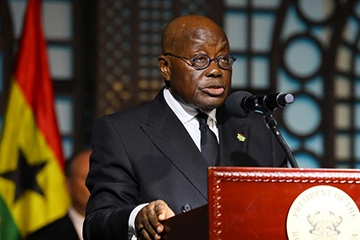 In a recent interview, Hassan Ayariga, founder of the All People’s Congress (APC), and one of Ghana’s presidential candidates, pledged to ban sports betting in the country, if elected in the forthcoming Ghanaian general elections in 2024.
In a recent interview, Hassan Ayariga, founder of the All People’s Congress (APC), and one of Ghana’s presidential candidates, pledged to ban sports betting in the country, if elected in the forthcoming Ghanaian general elections in 2024. The national betting company of Finland, Veikkaus, is set to no longer be the sole operator permitted to offer online gambling to Finnish gaming and sports betting enthusiasts. Finland’s Ministry of the Interior is moving forward with a gambling reform project that will make it possible for independent gambling operators to obtain licenses and operate within the country legally.
The national betting company of Finland, Veikkaus, is set to no longer be the sole operator permitted to offer online gambling to Finnish gaming and sports betting enthusiasts. Finland’s Ministry of the Interior is moving forward with a gambling reform project that will make it possible for independent gambling operators to obtain licenses and operate within the country legally.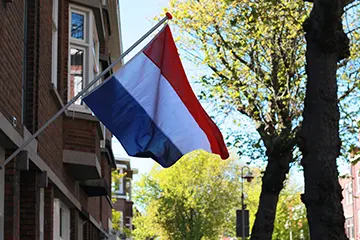 Frank Weerwind, the Dutch Minister for Legal Protection, confirmed the launch of a multi-year program aimed at bolstering digital resilience amid growing apprehensions over cybercrimes associated with online gambling.
Frank Weerwind, the Dutch Minister for Legal Protection, confirmed the launch of a multi-year program aimed at bolstering digital resilience amid growing apprehensions over cybercrimes associated with online gambling. During a recent press-conference, coach of the Italian club Pescara Zdeněk Zeman expressed his disapproval of the punishment Italian football players are facing after being found to have gambled illegally. He stated that player bans tied to sports betting should be more severe.
During a recent press-conference, coach of the Italian club Pescara Zdeněk Zeman expressed his disapproval of the punishment Italian football players are facing after being found to have gambled illegally. He stated that player bans tied to sports betting should be more severe. According to the latest press release by the Pennsylvania Gaming Control Board (PGCB), the regulator imposed a $30,000 fine on Live! Casino Pittsburgh. The gaming and entertainment venue, located in Hempfield Township, Westmoreland County, Pennsylvania, was penalized for breaching regulations regarding gambling access to underage and self-excluded players.
According to the latest press release by the Pennsylvania Gaming Control Board (PGCB), the regulator imposed a $30,000 fine on Live! Casino Pittsburgh. The gaming and entertainment venue, located in Hempfield Township, Westmoreland County, Pennsylvania, was penalized for breaching regulations regarding gambling access to underage and self-excluded players. Online gambling is now confirmed illegal under Malaysia’s Common Gaming Houses Act 1953. The ruling was decided upon by the Malay Court of Appeal after two individuals, who were convicted for offenses tied to illegal gambling, questioned the court on whether a “common gaming house,” as defined in the country’s Common Gaming Houses Act 1953, also referred to locations where no gaming machines are utilized, and gameplay is achieved through the usage of computers.
Online gambling is now confirmed illegal under Malaysia’s Common Gaming Houses Act 1953. The ruling was decided upon by the Malay Court of Appeal after two individuals, who were convicted for offenses tied to illegal gambling, questioned the court on whether a “common gaming house,” as defined in the country’s Common Gaming Houses Act 1953, also referred to locations where no gaming machines are utilized, and gameplay is achieved through the usage of computers.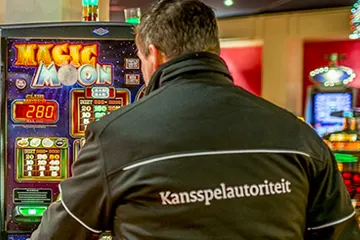 The Dutch gambling regulator, Kansspelautoriteit (KSA), has published an announcement unveiling Blue High House, the operator of Betonline.ag, received a cease-and-desist notice for offering unauthorized gambling content in the Netherlands. The regulatory authority has warned the gambling services provider to discontinue its activity on the Dutch market. Failure to comply with this notice would result in weekly fines of €43,000, up to a maximum of €129,000.
The Dutch gambling regulator, Kansspelautoriteit (KSA), has published an announcement unveiling Blue High House, the operator of Betonline.ag, received a cease-and-desist notice for offering unauthorized gambling content in the Netherlands. The regulatory authority has warned the gambling services provider to discontinue its activity on the Dutch market. Failure to comply with this notice would result in weekly fines of €43,000, up to a maximum of €129,000.





 Timothy Surgen, resident of Kent, Florida, faces more than 100 charges for his alleged possession of slot machines and for operating the said pieces of casino equipment within his Treasure Island Arcade, Black Beards Super Game Room, and Games N More adult arcade establishments. The alleged illegal operations were conducted through his company, Surgen Enterprises LLC.
Timothy Surgen, resident of Kent, Florida, faces more than 100 charges for his alleged possession of slot machines and for operating the said pieces of casino equipment within his Treasure Island Arcade, Black Beards Super Game Room, and Games N More adult arcade establishments. The alleged illegal operations were conducted through his company, Surgen Enterprises LLC.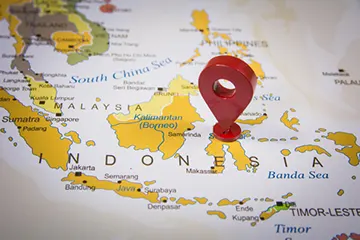 As online games incorporating gambling elements or forms of gambling become increasingly popular, the National Child Protection Commission of Indonesia (KPAI) prompted the Ministry of Communication and Information Technology (Kominfo) and the National Police (POLRI) to ramp up their efforts to block them.
As online games incorporating gambling elements or forms of gambling become increasingly popular, the National Child Protection Commission of Indonesia (KPAI) prompted the Ministry of Communication and Information Technology (Kominfo) and the National Police (POLRI) to ramp up their efforts to block them.